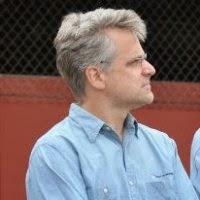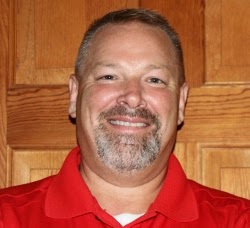by jboullion | Jul 23, 2014 | Uncategorized
From a July 22, 2014 story by Tim Meulemans and Steve Chamraz, of TMJ4:
On his farm in Sheboygan County, Dan Kraemer knows two constants — the wind and his fight with Plymouth Utilities.
On this day, a truck from the utility is pulling up to cut off his power. It’s the last step of a battle that ended with Dan refusing to pay his bill.
The Kraemer’s have been living on that land for generations. To save money, Dan works every piece of equipment and every angle.
“On a farm you’re a jack of all trades, master of none they tell me, but we do everything we can to save a dollar,” Kraemer said.
With that in mind, he built a windmill — his plan to go ‘off the grid.’
“I’m running 100 percent wind right now,” Kraemer said.
The windmill’s blades almost never stop — spinning out electricity and money.
“I’m producing considerably more power than I use. Enough to power 8 to 10 additional homes besides what I’m using today,” Kraemer said.
Whatever Kraemer does not need, Plymouth Utilities resells at the full retail rate. However, it only pays Kraemer about a 1/4 of that.
Read the rest of the article and view the video news story featuring RENEW Executive Director, Tyler Huebner
by jboullion | Jul 22, 2014 | Uncategorized
Public Service Commission asks for options regarding 2015-2018 program
Today, the Public Service Commission decided to explore how rebates for renewable energy projects can be continued while establishing a new revolving loan program. This is a welcome decision compared with the previous Commission meeting on July 10, where it appeared the rebate component would be discontinued.
Wisconsin’s “Focus on Energy” program makes rebates and technical assistance available to utility customers who wish to upgrade their homes, businesses, and facilities with energy efficient technologies or renewable energy systems. Over the past six months, the Public Service Commission, which oversees the program, has been planning the program’s offerings and metrics for 2015 to 2018. RENEW Wisconsin has been integral to ensuring renewable energy systems, such as solar panels, small wind, geothermal heat pumps, and bioenergy systems utilizing biomass and biogas, have been included in Focus on Energy since 1999. RENEW Wisconsin has participated fully in this most recent planning process.
On July 10, the Commission began their discussion on the 2015 to 2018 program offering, and it appeared the renewable energy rebates would be eliminated and replaced with a small loan program.
Today, Commission Chairman Phil Montgomery requested a review of options to run a renewable energy program that would feature both rebates and the new loan offering. As part of that review, Chairman Montgomery asked to revisit decisions that governed the renewables program from 2011-2014, including the grouping of certain technologies and the accounting of the dollars expended. Commissioner Eric Callisto agreed that rebates should continue to be a part of the renewables program. The review will be conducted by Commission staff and CB&I, the Focus on Energy program administrator, with results delivered to the Commission by September 30th.
“Today’s decision to explore options for combining the existing rebate program with a new revolving loan program is good news for Wisconsin’s ‘small renewables’ industry, at least for now,” said Tyler Huebner, RENEW Wisconsin’s Executive Director. “Throughout this planning period for 2015-2018’s programs, RENEW Wisconsin has consistently advocated that continuing rebates are critical to this market, just like they are for the energy efficiency markets, and that adding a revolving loan program could further stimulate the market. The marketplace has been on a rollercoaster the past four years based on Commission decisions, and we look forward to seeing a program from 2015 to 2018 that is consistent, predictable, and gives people and businesses options to install renewable energy systems on their own property. Although the rebate program is back on the table, our work isn’t done until a new program is formally approved by the Commission.”
Renewable energy is a growing field nationally, with over 143,000 jobs in solar energy alone, according to the Solar Foundation’s National Solar Jobs Census in 2013. That’s more than the U.S. auto industry and almost 50,000 more than the U.S. coal mining industry.
In addition to the rebate program’s uncertainty, Wisconsin’s renewable energy industry faces another threat. Some of Wisconsin’s utility companies have proposed changes to the way they treat customers that have renewable energy systems. We Energies has proposed charging fees to customers that have solar, small wind, or biogas electricity generating equipment. We Energies, Madison Gas & Electric, and Wisconsin Public Service have all proposed to increase customers’ monthly fixed charges. Alliant Energy is proposing changes for customers with small renewable energy systems that would dramatically reduce the financial payback of those systems. These decisions will be also discussed this fall by the Commission. Combined, the fate of Wisconsin’s small renewables industry hangs in the balance.
by jboullion | Jul 21, 2014 | Uncategorized
Based on a July 18, 2014 article by Chuck Quirmbach on Wisconsin Public Radio
The Alliance for Solar Choice, a solar industry trade group, has scorned three Wisconsin utility’s attempts to harm solar companies through their respective proposed rate restructuring. All three rate proposals include a planned increase in customer’s fixed charges, while offering a small decrease in the price of energy use per kWh.
The Alliance for Solar Choice represents many members of the rooftop solar industry and believes that We Energies’ (along with WPS and MGE) plan would stop customers from having installers lease them solar panels. Alliance president Bryan Miller believes that utilities are adopting the philosophy of “if you can’t stop it, monopolize it” by assuring that rooftop solar is more economical through the utility. We Energies has also unveiled a solar panel leasing ban, further adding to the calamity felt by solar contractors. The utility waited to propose this ban after the deadline for groups to formally intervene in the rate case before the Public Service Commission, the entity that would review the proposal. According to Miller, “the way they did this shows you really what the character of this company is about.”
We Energies spokesperson Cathy Schultze said her company followed standard procedures for rate cases, stating that “the same amount of time that usually transpires went down in this case.” Further, Schultze stated that the increase in fixed charges is fairer to customers who can’t afford or don’t want solar panels, a surprising statement considering that the 1,450 MW of residential solar installations across the country since 2000 have been overwhelmingly occurring in middle-class neighborhoods that have medium incomes ranging from $40,000 to $90,000 (read the Center of American Progress report here).
Read the entire article here
by jboullion | Jul 18, 2014 | Uncategorized
The following article by Dan Shaw was featured in the Daily Reporter on July 16, 2014:
The owner of a solar-power company is expressing grudging admiration for what he described as We Energies’ latest attempt to fend off competition from businesses such as his.
Matt Neumann’s company, Pewaukee-based SunVest Solar Inc., filed documents with utility regulators Tuesday to formally oppose We Energies’ request to modify the rates charged to its gas and electricity customers. Neumann and his colleagues are particularly concerned about a proposal that, he contends, would provide fair compensation for the production of renewable energy only to those who own the generation equipment they get power from.
In other words, Neumann said, We Energies’ request is a direct assault on third-party ownership, an arrangement that lets an independent company own solar panels or other devices installed on a customer’s property. He said he has many reasons to dislike We Energies’ proposal, but he can at least appreciate the strategy.
If regulators approve the request, Neumann said, We Energies will have taken away the sting from any law state legislators might approve making third-party ownership explicitly legal in the utility’s service territory.
“We are going to be doing away with third-party ownership,” he said. “Even if there is legislation, the rate structure won’t allow it.”
Renewable-energy advocates often tout third-party ownership as the best way to overcome what they say is the greatest barrier to more widespread use of solar panels and similar devices: the high upfront costs of installation. Third-party ownership is explicitly allowed in many states, often providing a spur to the construction of renewable-energy projects, but the arrangement is in a legal gray area in Wisconsin.
Wisconsin regulators have opined that any independent business that sells power directly to a customer is a public utility and thus cannot compete directly with We Energies or other companies that have monopoly rights to certain parts of the state. Even so, officials have not cracked down on various third-party arrangements that are set up using leases rather than direct purchases of electricity.
Two state lawmakers, Reps. Chris Taylor, D-Madison, and Gary Tauchen, R-Bonduel, introduced a bill in March that would lay out the circumstance in which third-party ownership would be legal. But the bill never made it to a debate because the Legislature was about to recess for the rest of the year.
Until such legislation is passed, the assumption among utility officials is that third-party ownership is not permitted in Wisconsin, said Brian Manthey, a spokesman for We Energies. He said the utility’s request is in keeping with that assumption.
“We have to go with what state law is right now,” Manthey said. “We can’t predict what any future policy might be.”
Renewable-energy advocates say We Energies’ request is a threat largely because, if approved, it would prevent customers involved in third-party agreements from taking part in what is known as “net metering.” Net metering lets customers receive credit for power they generate but do not consume immediately. They then use that credit to avoid paying for electricity at other times.
Any excess kilowatts produced by solar panels during the day, for instance, can be used to avoid paying for kilowatts obtained from a utility company when the sun is not shining. We Energies’ proposal would offer net metering only to customers who own the generation equipment.
Those who do not own the solar panels or other devices still could lower their energy bills but would not get credit for any excess produced. Neumann and others say most of the economic benefits of third-party ownership would be lost.
A similar effect would result, renewable-energy advocates argue, from proposals contained not only in We Energies’ rate request but in those from two other utility companies in Wisconsin. We Energies, Madison Gas & Electric and Wisconsin Public Service Corp. all have proposed increasing the so-called “fixed charges” that appear on monthly utility bills regardless of how much power customers use.
MG&E, which serves the area around Madison, originally proposed increasing its fixed charge from $10.50 a month to about $21 in 2015, but has since reduced the request to $19. Wisconsin Public Service Corp., which mainly provides power to customers in the northeastern and central parts of the state, is trying to increase the fixed charge to residential ratepayers from $10.40 a month to $25 and from $12.50 to $35 for small commercial customers.
We Energies is proposing a smaller increase, going from about $9 a month to $16. But the utility also would force those who produce their own power to pay a separate “demand charge,” which would be set in accordance with the production capacity of their generation equipment.
Utility representatives contend the fixed charges need to be higher because they historically have not been set at a level that covers the cost of the electrical grid and other equipment needed to deliver electricity to customers. Even those who generate their own power, the argument goes, still need to pull electricity off the grid from time to time and should pay their fair share for the upkeep of that system.
Neumann said he takes the requests, especially We Energies’ proposal to impose an additional demand charge, as further evidence that utilities are trying to protect themselves from competition. Without third-party ownership, he said, the threat to those monopolies is hypothetical.
“We do 95 percent of our work out of state,” Neumann said, “even though we’d rather do our work here.”
by jboullion | Jul 11, 2014 | Uncategorized
This morning, the Iowa Supreme Court handed down a ruling that supports third-party power purchase agreements. This ruling is a win for the solar industry and sets an important precedent for future legal challenges to third-party ownership in other states, such as Wisconsin.
The following article posted on Business Record’s website contains more details regarding the ruling:
Iowa Supreme Court ruling clears way for third-party rooftop solar agreements
Friday, July 11, 2014 10:35 AM
The Iowa Supreme Court issued a ruling this morning that a Dubuque solar energy company did not act as a public utility when it attempted to enter into a third-party power purchase agreement with the city of Dubuque, the Dubuque Telegraph Herald reported.
In a split decision, the court ruled, 4-2, with one abstention, in favor of Eagle Point Solar in the case filed against the Iowa Utilities Board. The ruling is expected to clear the way for additional municipalities or nonprofits, which cannot directly claim solar tax credits, to buy solar energy from non-utility third parties and take advantage of the credits.
Continue reading here…

by jboullion | Jul 8, 2014 | Uncategorized
RENEW Wisconsin members re-elected four directors to its governing board in June.
“We are thrilled that these four re-elected board members will continue to serve RENEW Wisconsin as we collectively work towards our newly adopted mission to lead and accelerate the transformation to Wisconsin’s renewable energy future through advocacy education, and collaboration,” said Carl Siegrist, RENEW’s board president.
The four Directors are:
 Brian Hildebrand, administrator with the UW-Madison Center for Sustainability and the Global Environment as well as with the Center for Climatic Research.
Brian Hildebrand, administrator with the UW-Madison Center for Sustainability and the Global Environment as well as with the Center for Climatic Research.

Niels Wolter, is an independent consultant working with prospective owners of large commercial solar electric systems and is the Managing Director of Encon Services International LLC.
 Greg Fritsch, President of Clean Energy North America, a bioenergy and cogeneration project development and consulting company. Greg has been involved in banking, consulting, and energy project development for 25 years.
Greg Fritsch, President of Clean Energy North America, a bioenergy and cogeneration project development and consulting company. Greg has been involved in banking, consulting, and energy project development for 25 years.
 Don Wichert, volunteer advisor to RENEW Wisconsin and independent consultant with Eudai Energy, LLC. Don has been involved with renewable energy in Wisconsin for over 30 years with the State Energy Office, Wisconsin Energy Conservation Corporation, and RENEW Wisconsin as Board Member and interim Executive Director.
Don Wichert, volunteer advisor to RENEW Wisconsin and independent consultant with Eudai Energy, LLC. Don has been involved with renewable energy in Wisconsin for over 30 years with the State Energy Office, Wisconsin Energy Conservation Corporation, and RENEW Wisconsin as Board Member and interim Executive Director.
These directors will serve three-year terms starting in July 2014 and going through June 2017.




